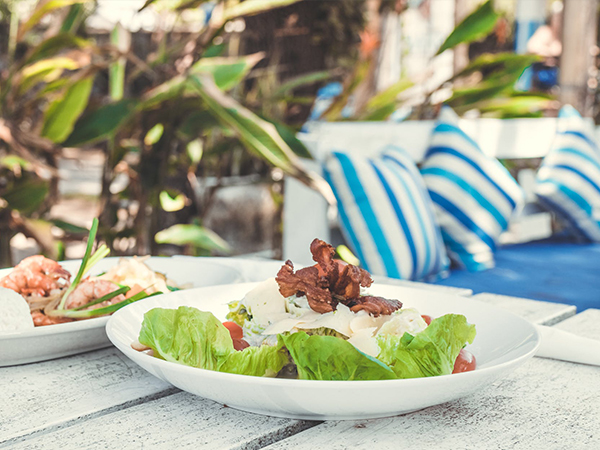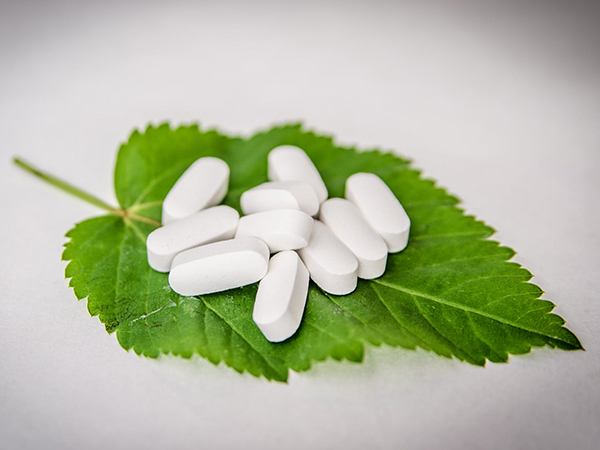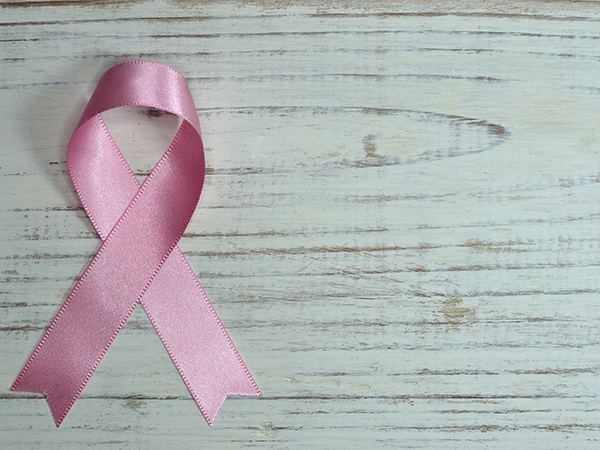Just In
- 2 hrs ago

- 3 hrs ago

- 6 hrs ago

- 6 hrs ago

Don't Miss
- Finance
 Rs 7.50/Share Dividend: Adani Group Cement Company Reports Strong Q4 Results; Profit Surges 2x YoY
Rs 7.50/Share Dividend: Adani Group Cement Company Reports Strong Q4 Results; Profit Surges 2x YoY - Movies
 Heeramandi Premiere: Newly Engaged Aditi Rao Hydari Dazzles In A Multi-Coloured Anarkali Set; Guess The PRICE
Heeramandi Premiere: Newly Engaged Aditi Rao Hydari Dazzles In A Multi-Coloured Anarkali Set; Guess The PRICE - Education
 Tamil Nadu SSLC Results 2024: Number of Ways you can check the Results
Tamil Nadu SSLC Results 2024: Number of Ways you can check the Results - News
 Rajnath Singh Or Nitin Gadkari Could Have Been PM: Mamata Banerjee's Dig At BJP
Rajnath Singh Or Nitin Gadkari Could Have Been PM: Mamata Banerjee's Dig At BJP - Automobiles
 Bajaj To Offer Chetak Electric Scooter At Lower Price Point: All Details Here
Bajaj To Offer Chetak Electric Scooter At Lower Price Point: All Details Here - Sports
 Bangladesh vs Zimbabawe: Will Shakib Al Hasan Play Home T20 Series In May Or Not?
Bangladesh vs Zimbabawe: Will Shakib Al Hasan Play Home T20 Series In May Or Not? - Technology
 Qualcomm Reveals Snapdragon X Plus Chip for Laptops: 10 Core CPU, On-Device AI, & Much More
Qualcomm Reveals Snapdragon X Plus Chip for Laptops: 10 Core CPU, On-Device AI, & Much More - Travel
 Escape to Kalimpong, Gangtok, and Darjeeling with IRCTC's Tour Package; Check Itinerary
Escape to Kalimpong, Gangtok, and Darjeeling with IRCTC's Tour Package; Check Itinerary
The Gerson Therapy: What You Need To Know
Cancer is attributed to the abnormal growth of body cells. Cancer is among the leading causes of death globally. Apart from the medicinal cancer treatment techniques, there are few alternative therapies that have been shown to work in case of certain clinical trials on dealing with cancerous cells. Many people believe these forms of natural therapies as a convenient and effective means of preventing/treating cancer.

One such popular alternative treatment methodology is the Gerson Therapy. The focus of this therapy is on the development of a nutritional system that contains a specialized diet, raw juices, supplements and detoxification [1] . However, there have also been several questions asked on the efficacy of the Gerson Therapy by several expert doctors.
Read on to find out how effective this therapy is in treating cancer as well as few other chronic ailments.
What Is The Gerson Therapy?
The Gerson Therapy is also sometimes known as the Gerson Therapy diet. The therapy claims to be able to activate the body's extraordinary ability to heal itself. It is developed by Dr. Max B. Gerson, who himself had used the therapy successfully to treat his migraine [2] .
According to Gerson, cancers (and many other chronic diseases) are caused due to metabolic changes in the body. Metabolism is affected when toxic substances accumulate in one's body. The Gerson Therapy works by restoring the wellness of the health through the removal of toxins and in turn increasing immunity [3] .
The three major components of the Gerson Therapy are [4] as follows:
- Diet
- Detoxification
- Supplements
People undergoing this therapy need to follow an organic, plant-based diet alongside using coffee enemas several times in a day for detoxification. Also, this therapy requires the person to intake a variety of supplements to help correct cell metabolism.
How Does The Gerson Therapy Work?
The successful working of this therapy is dependent on the diligent execution of its components that include the following:
- Diet: This therapy needs you to follow a complete vegetarian diet. Moreover, the diet should be low in sodium, fats and proteins. One should consume approximately 7 kg of organic produce per day. This is considered helpful to flood the body with nutrients. It is better to consume raw juices [5] . Drinking up to 240 ml of raw juice per hour up to 13 times in a day is considered beneficial.
- Detoxification: When proper diet is combined with the intake of supplements, toxins are released from the body's tissues. In such scenarios, the liver tends to work harder than usual (as it is overloaded with the task of processing toxins). To support the liver, the Gerson Therapy asks its followers to incorporate coffee enemas [6] . These are known to widen the liver's bile duct so that it can easily release toxins. This therapy recommends one coffee enema for every 720 ml of juice consumed.

- Supplements: The supplements are intended to support the cells' metabolic processes rather than focusing on providing nutrients (which the diet is any which way already maintaining). The supplements recommended are pancreatic enzymes, potassium [7] , a thyroid hormone supplement, Lugol's solution, vitamins B3 and B12.

Gerson believed that diseased cells contained too much sodium and too little potassium. Therefore, under this therapy, one is put on a low sodium, high potassium diet. When the cells reportedly begin to shrink, it is a sign of recovery.
Can The Gerson Therapy Treat Cancer?
Although there is no evidence that could support the claims of the Gerson Therapy, a few researchers have studied its effects on treating cancer. It was observed that about 153 people who had skin cancer and were put on the Gerson Therapy survived much longer than patients who chose to proceed with the conventional treatment mechanisms [8] .
However, these studies being small scale cannot be considered strong enough to be accounted as the perfect means to determine the efficacy of the Gerson Therapy.
High-quality studies need to be performed to accurately determine the effectiveness of the Gerson Therapy's ability to combat cancer.

Foods To Avoid When On The Gerson Therapy
The Gerson Therapy does not permit the intake of foods that are high in sodium, protein and fat. The following is the list of foods that you cannot eat when on the Gerson Therapy [9] :
- Fruits such as pineapples, cucumbers, avocados and berries
- Sprouted alfalfa and other bean sprouts
- All nuts and seeds
- All oils, fats and naturally high-fat foods (nuts, coconuts, avocados)
- Spices such as black pepper, basil, oregano and paprika
- All salt or sodium
- Baking powder and baking soda
- All alcoholic beverages
- Commercial juices, coffee, black tea
- Soy sauce, mustard and liquid aminos
- Baked foods and sweets such as candies, muffins and cakes
- Meats and seafood including eggs and other animal proteins
- All dairy products including cheese and milk
- Protein supplements
- Soybeans and soy products
- Vegetables such as hot peppers, mushrooms, radish greens, carrot greens, mustard greens and raw spinach
- Dried beans and legumes
The Gerson Therapy also discourages drinking water while on the diet [10] . This is because it is believed that water would dilute the stomach acid and not allow enough room for the fresh juices or foods. Instead, it is advisable that one drinks 13 glasses of freshly pressed juice or herbal tea daily.
Foods To Eat When On The Gerson Therapy
It is mandatory to stick to an organic, plant-based diet. The following can be consumed [11] :
- Vinegar - either wine or apple cider
- Dried fruits such as dates, figs, peaches, prunes, apricots and raisins
- All fresh fruits except pineapples and berries
- Lentils once you have crossed the sixth-month mark of the therapy
- Non-fat organic yoghurt
- Rye bread, brown rice and oatmeal
- Freshly pressed juices, caffeine-free herbal teas
- Spices such as bay leaves, coriander, dill, fennel, anise, mace, rosemary, sage, saffron, tarragon and sorrel.
The following can be eaten occasionally:
- Quinoa
- Bananas
- Breads
- Popcorn
- Yam and sweet potatoes
- Maple syrup, honey, brown sugar, etc.

Potential Health Benefits Of The Gerson Therapy
Although there have not been any comprehensive studies as such, the following are attributed as the potential health benefits of this therapy, primarily because it is a nutrient-rich, plant-based diet [12] .
- May reduce the risk of heart diseases: Diets that contain vegetables and fruits and are high in fibre content have been associated with a reduced risk of heart disease.
- May reduce arthritis pain: Plant-based diets have been linked to reduced symptoms of arthritis such as joint swelling, pain and morning stiffness.
- May help relieve constipation: Since plant-based diets are high in fibre, they might help in relieving constipation. This ensures a healthy digestive system.
- May improve kidney function: Plant-based diets may give protection against kidney disease and kidney stones.
- Higher in nutrients: Plant-based diets tend to provide more vitamins, minerals, fibre and antioxidants than typical Western diets (that are high in processed foods).
Potential Downsides And Health Risks Of The Gerson Therapy
The Gerson Therapy has the following downsides and risks:
- Coffee enemas [13] (done four to five times daily) can be troublesome as well as dangerous at least for starters. Self-administered enemas can cause damage near the anus area. This also might cause severe electrolyte imbalances when done more than once per day.
- Coffee enemas can cause serious bacterial infections and rectal burns.
- When there is severe electrolyte imbalance in the body it can lead to heart failure [14] .
- Plant-based diets usually do not contain sufficient iron and can increase the risk of iron deficiency in the body.
- Attending social events or travelling can get difficult unless you carry your own food.
- A protein-restricted diet [15] (as is the case for people on the Gerson Therapy) can be problematic for people with cancer. This is because the intake of poultry and soy is essential to fulfil the dietary needs of a cancer patient.
- The Gerson Therapy discourages drinking of plain water. This can lead to dehydration unless the recommended dosage of raw juice intake per day is maintained strictly.
- [1] Vickers, A. J., & Cassileth, B. R. (2008). Living proof and the pseudoscience of alternative cancer treatments.Journal of the Society for Integrative Oncology,6(1), 37–40.
- [2] Molassiotis, A., & Peat, P. (2007). Surviving against all odds: analysis of 6 case studies of patients with cancer who followed the Gerson therapy.Integrative cancer therapies,6(1), 80-88.
- [3] Cassileth, B. (2010). Gerson regimen.Oncology (Williston Park, NY),24(2), 201-201.
- [4] Donaldson M. S. (2004). Nutrition and cancer: a review of the evidence for an anti-cancer diet.Nutrition journal,3, 19.
- [5] Donaldson M. S. (2004). Nutrition and cancer: a review of the evidence for an anti-cancer diet.Nutrition journal,3, 19.
- [6] Vickers, A. J., & Cassileth, B. R. (2008). Living proof and the pseudoscience of alternative cancer treatments.Journal of the Society for Integrative Oncology,6(1), 37–40.
- [7] Weaver C. M. (2013). Potassium and health.Advances in nutrition (Bethesda, Md.),4(3), 368S–77S.
- [8] Molassiotis, A., & Peat, P. (2007). Surviving against all odds: analysis of 6 case studies of patients with cancer who followed the Gerson therapy.Integrative cancer therapies,6(1), 80-88.
- [9] Hess, D. J. (2002). The raw and the organic: Politics of therapeutic cancer diets in the United States.The Annals of the American Academy of Political and Social Science,583(1), 76-96.
- [10] Molassiotis, A., & Peat, P. (2007). Surviving against all odds: analysis of 6 case studies of patients with cancer who followed the Gerson therapy.Integrative cancer therapies,6(1), 80-88.
- [11] Hever J. (2016). Plant-Based Diets: A Physician's Guide.The Permanente journal,20(3), 15–082.
- [12] Vickers, A. J., & Cassileth, B. R. (2008). Living proof and the pseudoscience of alternative cancer treatments.Journal of the Society for Integrative Oncology,6(1), 37–40.
- [13] Teekachunhatean, S., Tosri, N., Rojanasthien, N., Srichairatanakool, S., & Sangdee, C. (2013). Pharmacokinetics of Caffeine following a Single Administration of Coffee Enema versus Oral Coffee Consumption in Healthy Male Subjects.ISRN pharmacology,2013, 147238.
- [14] Kim, E. S., Chun, H. J., Keum, B., Seo, Y. S., Jeen, Y. T., Lee, H. S., … Ryu, H. S. (2014). Coffee enema for preparation for small bowel video capsule endoscopy: a pilot study.Clinical nutrition research,3(2), 134–141.
- [15] Mannion, C., Page, S., Bell, L. H., & Verhoef, M. (2010). Components of an anticancer diet: dietary recommendations, restrictions and supplements of the Bill Henderson Protocol.Nutrients,3(1), 1–26.
-
 healthExclusive: Cervical Cancer In India, Doctor Shares Preacautions And Treatments That One Needs To Be Aware Of
healthExclusive: Cervical Cancer In India, Doctor Shares Preacautions And Treatments That One Needs To Be Aware Of -
 healthTV Actor Dolly Sohi Passes Away Due To Cervical Cancer, Know The Early Signs That Are Beyond Early Detection
healthTV Actor Dolly Sohi Passes Away Due To Cervical Cancer, Know The Early Signs That Are Beyond Early Detection -
 healthGhazal Maestro Pankaj Udhas Passes Away Due To Pancreatic Cancer, Know Risk Factors, Prevention, Treatments
healthGhazal Maestro Pankaj Udhas Passes Away Due To Pancreatic Cancer, Know Risk Factors, Prevention, Treatments -
 healthNew Study Finds Links Infertility In Men With Increased Risk Of Cancer For Them And Their Relatives
healthNew Study Finds Links Infertility In Men With Increased Risk Of Cancer For Them And Their Relatives -
 healthIs Pancreatic Cancer Curable? Know The Causes, Warning Signs, And Treatment Of This Uncommon Silent Killer
healthIs Pancreatic Cancer Curable? Know The Causes, Warning Signs, And Treatment Of This Uncommon Silent Killer -
 insyncBaba Vanga's Prophecy For 2024 May Come True With New Vaccine In Russia For Cancer
insyncBaba Vanga's Prophecy For 2024 May Come True With New Vaccine In Russia For Cancer -
 healthDetecting Bowel Cancer: 10 Signs Of This Silent Killer To Watch Out For And Seek Medical Attention
healthDetecting Bowel Cancer: 10 Signs Of This Silent Killer To Watch Out For And Seek Medical Attention -
 health10 Cancer Fighting Foods That Help That Play Significant Role In Supporting Body's Natural Defences
health10 Cancer Fighting Foods That Help That Play Significant Role In Supporting Body's Natural Defences -
 healthWorld Cancer Day 2024: 5 Simple Daily Habits To Reduce The Risk Of Developing Cancer
healthWorld Cancer Day 2024: 5 Simple Daily Habits To Reduce The Risk Of Developing Cancer -
 healthWorld Cancer Day 2024: Messages, Greetings, Wishes, Texts, Images, FB And WhatsApp Status
healthWorld Cancer Day 2024: Messages, Greetings, Wishes, Texts, Images, FB And WhatsApp Status -
 healthExclusive: Poonam Pandey Didn't Die Of Cancer, However, It Does Spark Urgency For Cervical Cancer Awareness
healthExclusive: Poonam Pandey Didn't Die Of Cancer, However, It Does Spark Urgency For Cervical Cancer Awareness -
 healthErotica Star Poonam Pandey 'Dead From Cervical Cancer' Stunt: Causes, Symptoms, Treatment Of Cervical Cancer
healthErotica Star Poonam Pandey 'Dead From Cervical Cancer' Stunt: Causes, Symptoms, Treatment Of Cervical Cancer


 Click it and Unblock the Notifications
Click it and Unblock the Notifications



